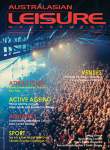Artificial Intelligence to have transformative impact on tourism industry

World Travel & Tourism Council (WTTC) and Microsoft have released reports highlighting the transformative power of Artificial Intelligence (AI) for the Tourism industry, marking a commitment to a digital future with unparalleled customer experiences.
The first in a series of AI reports, announced during the global tourism body’s event at FITUR and in collaboration with WTTC’s Industry Partner, Microsoft, is poised to redefine Tourism standards and call on the sector for greater integration of such technologies.
Julia Simpson, WTTC President & Chief Executive shares "as we navigate the ever-evolving landscape of travel and tourism, AI emerges as a catalyst for positive change.
“The transformative capabilities highlighted in this report demonstrate that AI is not just a technological advancement, it is a strategic tool that can personalise the customer experience, drive sustainable improvements, and create real time pricing models.”
As the global leader in tourism, WTTC is committed to driving innovation and supporting the sector to embrace AI and other cutting-edge technologies. To promote sustainability and excellent customer experiences, WTTC acknowledges the crucial importance of AI in revolutionising the sector.
Throughout the traveller’s journey, WTTC believes AI can play a pivotal role in delivering a tailored and enhanced experience now and in the future.
This technology can empower personalised recommendations and marketing strategies by analysing traveller data, optimising pricing strategies through real-time adjustments, and offering instant responses and fine-tuned interactions via sophisticated AI powered chatbots.
The report also highlights AI's capabilities extend to predicting future demand patterns, efficiently allocating resources, and providing valuable insights for governments and Tourism stakeholders.
This contribution can be pivotal in promoting sustainability with efficient resource management by monitoring and minimising environmental impacts, ensuring a more responsible and sustainable sector.
Julie Shainock, Microsoft Managing Director - Travel, Transport & Logistics adds "using Microsoft's Azure OpenAI Models across the travel sector allows greater productivity for companies and drive a more personalised consumer experience.
“For travellers, the ability to drive more inspiration and personalized offers at booking to providing tools to consumers to proactively assist them while in destination to anticipate their needs with relevant information to improve their journey. For travel companies, GenAI is there to increase productivity, automate the predictable, and allow our human centric approach to the high value moments in travel to shine more.”
Despite the increasing examples of AI applications in tourism, the report reveals the sector lags other consumer-facing industries in AI adoption. AI's surge across various sector’s last year is now a relevant force, and the Tourism sector must act now to leverage its impact.
Challenges that must be overcome by tourism businesses include a shortage of AI-skilled workers, limited AI infrastructure, and the absence of a formal ‘AI strategy’ in many business plans.
Tourism businesses are urged to embrace AI as a strategic priority, investing heavily in talent to foster collaboration between humans and AI.
Amid concerns about AI's impact on jobs, the report addresses the potential for job creation, recognising that although AI will be disruptive, it will in turn generate new opportunities.
In the quest for sustainable AI practices within tourism, responsible data management emerges as a crucial strategy.
Implementing measures such as data minimisation, efficient storage, and responsible data disposal, becomes pivotal for organisations seeking to minimise their carbon emissions when using new digital technologies, and reduce their AI environmental footprint significantly.
The report explores AI applications in society and business, emphasising the need for safe and responsible AI system design in Tourism, signifying a milestone in the sector's commitment to innovation and sustainability, and showcasing AI's potential to shape a bright future for Tourism.
To read the report in full, please visit WTTC’s Research Hub at https://researchhub.wttc.org/product/introduction-to-artificial-intelligence-ai-technology-guide-for-travel-tourism-leaders-2024
Related Articles
19th January 2024 - WTTC and Biosphere partner to standardise International Hotel Sustainability
20th December 2023 - WTTC report reveals significant increase in female employment in hospitality and tourism
14th December 2023 - WTTC’s hotel sustainability program verified in hotels across more than 30 countries
5th December 2023 - WTTC highlights need for tourism industry to reinvent its water strategy efforts
1st December 2023 - WTTC releases statement on the death of Henry Kissinger
17th January 2024 - Artificial Intelligence to drive Thailand in becoming leading ‘lifestyle’ tourist destination
24th November 2023 - Mindbody looks to use artificial intelligence to drive growth
15th November 2023 - Artificial Intelligence to drive growth in global theme parks and attractions
5th January 2022 - CSIRO launches artificial intelligence weight loss coach
5th April 2019 - Artificial Intelligence Technology used to perfect Golf Swing
8th March 2017 - Technogym partners with IBM to bring artificial intelligence into fitness






